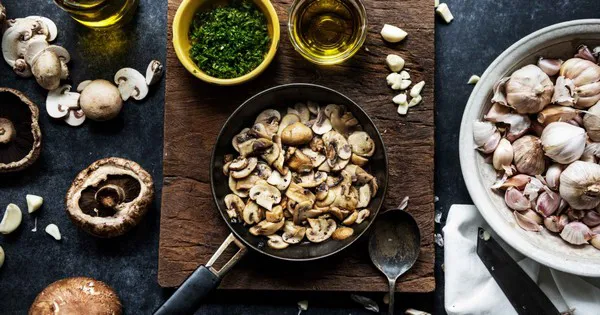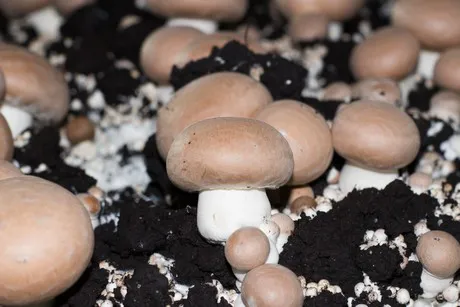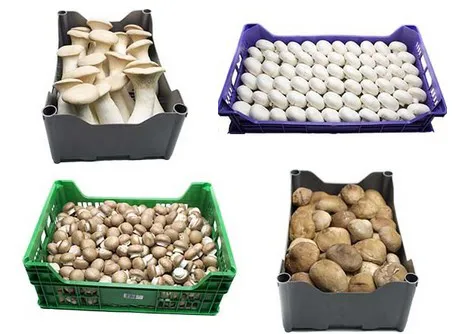“The upward trend in the consumption of 'new' cultivated mushrooms, such as the portobello, shiitake or Pleurotus eryngii, is clear. The rise in their popularity is due in part to haute cuisine and the hospitality industry, which are giving them visibility. They have become an accessible and attractive product, and it is increasingly easier for consumers to find them on the shelves,” says Sergio Pinto, commercial director of Neofungi. “Large retailers used to offer only regular mushrooms, but these special ones are now gaining ground,” he says.

“Consumers are concerned about their health, and it is a fact that these products contain macronutrients, antioxidants, a lot of water and fiber, etc. They are also a gastronomic experience that is attracting more and more people. With these products, innovation is achieved by giving way to an avant-garde, but simple kitchen,” says Sergio Pinto.
The circular economy: vital for the future of agriculture
Neofungi cultivates, markets and recycles. “The circular economy is vital for the future of the agricultural sector. This model, in addition to being sustainable, is the only one that offers a vital health guarantee,” he says.

“Being self-sufficient is very important to ensure quality and supply customers all year round. That is why we keep all the mushroom cycle processes under control, monitoring and guaranteeing the quality of the final product from the start of the process until the mushrooms are marketed. The cycle ends by processing the compost that is no longer usable, manufacturing fertilizers that will return to the field. The compost plant has been growing constantly over the last 10 years, making it possible to obtain a raw material that guarantees meeting the needs of the most demanding customers all year round.

The largest domestic producer of fresh mushrooms
With more than 50% of the domestic market, Neofungi is the largest Spanish producer of mushrooms for fresh consumption.
This second grade cooperative is made up of Champinter and Mercajúcar. These two different work models are complementary and have reached together an annual production of 30 million kilos of fresh mushrooms.
The domestic market absorbs 70% of Neofungi's production, the rest goes to neighboring countries with a mushroom culture, such as France, Portugal and Italy.
“The three main parameters for mushroom cultivation are: temperature, humidity and CO2. These conditions are only achieved with modern facilities,” says Sergio Pinto.
Neofungi will be present as an exhibitor at Fruit Logistica 2020 in Berlin from February 5 to 7 and invites you to stop by its stand: Hall 8.2 B-22.
For more information:
Sergio Pinto, commercial director
Neofungi
Camino Quintanar S/N
02636 Villalgordo del Júcar, Albacete. Spain
T: +34967455094
comercial@neofungi.es
www.neofungi.es
